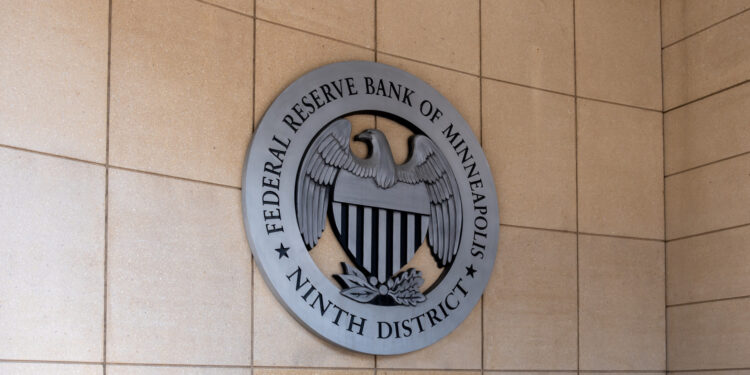- A recent paper from the Minneapolis Federal Reserve suggests Bitcoin and similar assets should be taxed or banned to help governments manage permanent deficits, citing Bitcoin’s fixed supply as a challenge for fiscal policy.
- VanEck’s Matthew Sigel compared the Minneapolis Fed’s stance to the European Central Bank’s, suggesting both aim to position government debt as the only “risk-free” security.
- Despite these criticisms, institutional adoption of cryptocurrencies is rising, with 80% of institutional investors planning to increase their investments following the approval of spot Bitcoin and Ether ETFs in 2024.
A recent research paper by the Federal Reserve Bank of Minneapolis—an institution no one has heard of until today—suggests that Bitcoin (BTC) and similar assets should be taxed or banned to help governments manage permanent deficits.
The paper, released on October 17, argues that Bitcoin’s presence in the economy complicates fiscal policy by creating what it calls a “balanced budget trap”. This phenomenon forces governments to balance their budgets due to Bitcoin’s fixed supply and lack of real resource claims.
Related: Aussie Analyst Reveals AI Meme Coins That Will ‘Dominate’ Bull Run
Matthew Sigel, head of digital asset research at VanEck, commented on October 21, noting that the Minneapolis Fed’s stance aligns with the European Central Bank’s (ECB) critical views on Bitcoin. He criticised the central banks’ arguments, suggesting they aim to position government debt as the only risk-free security.
Messari co-founder Dan McArdle pointed out a 1996 Minneapolis Fed paper titled “Money is Memory”, which seemed to describe the concept behind Bitcoin 12 years before its creation.
The paper described money as an object that doesn’t enter production, exists in fixed supply, and acts as a primitive form of memory—characteristics that align closely with Bitcoin’s design today.
Bitcoin is Worthless, Says Kashkari (Again)
Similarly, the Minneapolis Fed’s president, Neel Kashkari, reiterated his scepticism of cryptocurrencies, dismissing them as primary tools for criminal activities. He claimed that “very few transactions are actually happening” with crypto, except for illegal activities such as drug deals.
His comments were captured in a video hosted by the Chippewa Falls Area Chamber of Commerce.
According to Kashkari, cryptocurrencies are rarely used for legitimate goods and services. He has been a vocal critic of Bitcoin and other digital assets, previously likening the market to a “giant garbage dumpster” in 2019 and criticising the proliferation of “garbage coins” in 2021.
It didn’t take long for the cryptocurrency community to respond with some sweet comebacks
Nic Carter, partner at Castle Island Ventures, criticised the Federal Reserve official on X, stating:
I think being this wrong should be illegal.
 Nic Carter, Castle Island Ventures
Nic Carter, Castle Island VenturesAuthors like Parker Lewis joined the pushback:
Related: Concerns Raised Over Overseas Polymarket Bets as Trump Outpaces Harris
Despite Kashkari’s criticism, institutional adoption of cryptocurrencies continues to accelerate. In 2024, the US approved spot Bitcoin and Ether ETFs, fueling interest among investors. According to a survey by Nickel Digital, 80% of institutional investors plan to increase their digital asset investments in the coming months.
Credit: Source link





















